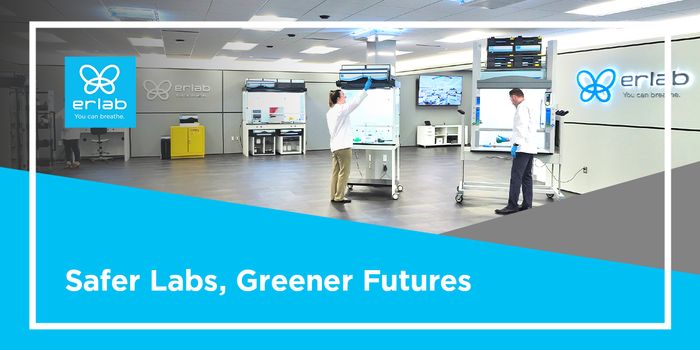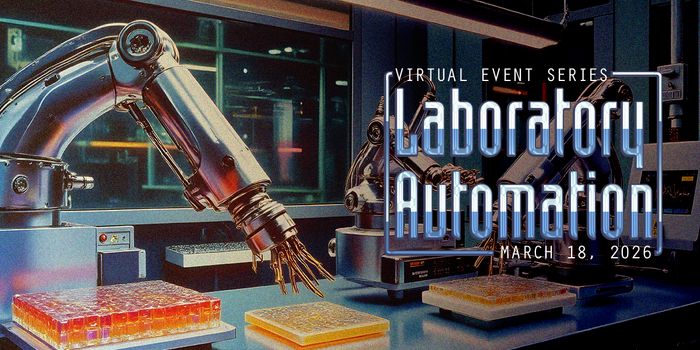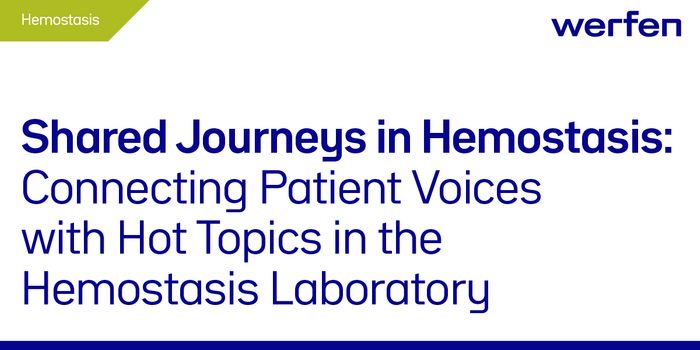Applied Biosystems Genetic Analysis Virtual Conference
Due to the fact that many large events and scientific conferences have been cancelled, we want to provide you with an outlet to present your research and learn from others in our community.
A key to scientific exploration is not just getting answers, it’s about formulating the right questions that will make a difference in the world. We want to inspire you to ask questions that make a difference. Because the most important thing you can do is ask another question. Without constant questioning, world-changing discoveries cannot be found.
To this end, we are excited to announce our Applied Biosystems Genetic Analysis Virtual Conference. This is a virtual, online event occurring on September 29-30, 2020, and serves as an opportunity for you to engage with us and other scientists, and to Ask.
We are bringing together experts to present talks and posters across a broad range of genetic analysis fields, including:
-
Viral testing and molecular diagnostics
-
Infectious disease research
-
Clinical oncology and Cancer research
-
Reproductive health and Inherited disease research
-
Polygenic risk scores and Population health
-
Pharmacogenomics research
-
Agrigenomics and Animal health
We will also have an Ask an Expert lounge, instrument demonstration hall, and exhibit hall that will showcase our platform technologies such as real-time PCR, next-generation and Sanger sequencing, and microarray analysis. In addition to insights gained in these fields, continuing education credits will be offered to those presentations that qualify.
Agenda Share
-
SEP 30, 2020 9:30 AM PDT
Common risk variants and complex disorders
David C. Whitcomb, MD, PhD, FACP, FACG, AGAG
Professor, Co-Founder Ariel Precision Medicine - Ariel Precision MedicineBIOGRAPHY -
-
SEP 30, 2020 9:00 AM PDT
The role of Sanger sequencing and fragment analysis by capillary electrophoresis in the fight against COVID-19
-
-
SEP 30, 2020 8:00 AM PDT
Cancer Genomics: What We Can Learn from Africa
Timothy Rebbeck
Professor of Cancer Prevention at the Harvard T.H. Chan School of Public Health and the Dana-Farber Cancer InstituteBIOGRAPHY -
SEP 30, 2020 7:30 AM PDT
Advancing Reproductive Health Through Innovative Genetic Analysis Solutions
George Hii
Director, Global Market Development and Marketing, Reproductive Health - Thermo Fisher ScientificBIOGRAPHY -
SEP 30, 2020 7:30 AM PDT
Contribution of Chromosomal Microarrays to Precision Medicine in the Clinical Laboratory
Laila Mnayer, MS, PhD, FACMG
Division Director, Molecular Pathology & Cytogenetics - Hartford Hospital, Hartford HealthcareBIOGRAPHY -
-
SEP 30, 2020 7:30 AM PDT
Two distinct immunopathological profiles in autopsy lungs of SARS-CoV-2
Viktor Kölzer, MDAttending Pathologist and Assistant Professor for Image...Ronny NeinholdGroup Head in Molecular Pathology - Institute of Pathol... -
SEP 30, 2020 7:00 AM PDT
SARS-CoV-2 and co-infections: A detailed survey of viral and bacterial respiratory pathogens
-
SEP 30, 2020 7:00 AM PDT
The Road to Widespread Application of Polygenic Risk Scores in Health Care Delivery Decision Making
-
SEP 30, 2020 7:00 AM PDT
miRNA biomarker discovery in cardiovascular research
Yuri D'Alessandra
Sr. Researcher, Immunology and Functional Genomics Unit - Centro Cardiologico MonzinoBIOGRAPHY -
SEP 30, 2020 6:30 AM PDT
Updates on the Use of Broad-Spectrum Copy Number Data in the Clinical Workup of CNS Neoplasia
Stewart G Neill, MD
Assistant Professor, Pathology & Laboratory Medicine, Associate Director, Pathology Residency Program, Emory UniversityBIOGRAPHY -
-
SEP 29, 2020 9:00 AM PDT
A conversation-What happens when COVID-19 meets flu season?
Manoj Gandhi, MD, PhD
Senior Medical Director, Genetic Testing Solutions, Thermo Fisher ScientificBIOGRAPHY -
SEP 29, 2020 9:00 AM PDT
Verifying immunooncology-related gene expression patterns in colon tumor research samples using RFID-tagged TaqMan panels
-
SEP 29, 2020 8:30 AM PDT
Genetic technologies for the discovery and verification of cancer immunotherapy biomarkers
-
SEP 29, 2020 8:30 AM PDT
How to Select a Pharmacogenomics Platform for Clinical Research
-
SEP 29, 2020 8:30 AM PDT
Technical Advances in Octoploid Strawberry Genomics and Genome-Informed Breeding
Steven J. Knapp
Professor and Director of the University of California, Davis Strawberry Breeding ProgramBIOGRAPHY -
SEP 29, 2020 8:00 AM PDT
Clinical Laboratory Experience with TaqPath COVID-19 Testing
-
-
SEP 29, 2020 8:00 AM PDT
How Comprehensive Pharmacogenomics Accelerates Personalized Therapies and Reduces Health Disparities for Minorities
Ulrich Broeckel, MD
CEO and Founder of RPRD Diagnostics; Professor at Medical College of Wisconsin - RPRD DiagnosticsBIOGRAPHY -
SEP 29, 2020 7:30 AM PDT
AgriSeq™ - Fast and Affordable Genotyping by Sequencing Solution for Breeding Programs
-
SEP 29, 2020 7:30 AM PDT
Announcing the Thermo Fisher Scientific™ Amplitude™ Solution: High-Throughput, Highly Automated COVID-19 Testing
-
SEP 29, 2020 7:30 AM PDT
Quality control of human cell lines and other ex vivo-manipulated human samples
-
SEP 29, 2020 7:30 AM PDT
The Landscape of Pharmacogenetic Resources
Andrea Gaedigk, PhD
Director Pharmacogenetic Core Laboratory, Division of Clinical Pharmacology and Therapeutic InnovationBIOGRAPHY -
SEP 29, 2020 7:00 AM PDT
High-throughput, low-cost transcriptome profiling with the Clariom GO Screen Assay
Anthony Schweitzer
Director, Expression Bioinformatics, Microarrays - Thermo Fisher ScientificBIOGRAPHY -
SEP 29, 2020 7:00 AM PDT
Improve Lives, Reduce Costs and Simplify Decision-Making: Enterprise Pharmacogenomics
-
-
SEP 29, 2020 6:30 AM PDT
Clariom D application in breast cancer
Yesim Gokem-Polar, PhD
Associate Research Professor - Indiana University School of MedicineBIOGRAPHY -
SEP 29, 2020 6:30 AM PDT
Preemptive PGx at Population-Scale: Implementation in Pittsburgh
Philip Empey, PharmD, PhD
Director, Pharmacogenomics Center of Excellence; Associate Director, Institute for Precision Medicine - University of PittsburghBIOGRAPHY -
-
SEP 29, 2020 6:00 AM PDT
Fireside chat: When COVID-19 meets RSV and flu season
Manoj Gandhi, MD, PhD
Senior Medical Director, Genetic Testing Solutions, Thermo Fisher ScientificBIOGRAPHY -
SEP 29, 2020 6:00 AM PDT
Precision Medicine - The Triple Helix Approach
Anna Dominiczak, DBE MD FRCP FAHA FRSE FMedSci
Regius Professor of Medicine - University of GlasgowBIOGRAPHY
- AgriBusiness
-
-
-
SEP 29, 2020 7:30 AM PDT
AgriSeq™ - Fast and Affordable Genotyping by Sequencing Solution for Breeding Programs
-
-
SEP 29, 2020 8:30 AM PDT
Technical Advances in Octoploid Strawberry Genomics and Genome-Informed Breeding
Steven J. Knapp
Professor and Director of the University of California, Davis Strawberry Breeding ProgramBIOGRAPHY - Pharmacogenomics
-
SEP 29, 2020 6:00 AM PDT
Precision Medicine - The Triple Helix Approach
Anna Dominiczak, DBE MD FRCP FAHA FRSE FMedSci
Regius Professor of Medicine - University of GlasgowBIOGRAPHY -
SEP 29, 2020 6:30 AM PDT
Preemptive PGx at Population-Scale: Implementation in Pittsburgh
Philip Empey, PharmD, PhD
Director, Pharmacogenomics Center of Excellence; Associate Director, Institute for Precision Medicine - University of PittsburghBIOGRAPHY -
SEP 29, 2020 7:00 AM PDT
Improve Lives, Reduce Costs and Simplify Decision-Making: Enterprise Pharmacogenomics
-
SEP 29, 2020 7:30 AM PDT
The Landscape of Pharmacogenetic Resources
Andrea Gaedigk, PhD
Director Pharmacogenetic Core Laboratory, Division of Clinical Pharmacology and Therapeutic InnovationBIOGRAPHY -
SEP 29, 2020 8:00 AM PDT
How Comprehensive Pharmacogenomics Accelerates Personalized Therapies and Reduces Health Disparities for Minorities
Ulrich Broeckel, MD
CEO and Founder of RPRD Diagnostics; Professor at Medical College of Wisconsin - RPRD DiagnosticsBIOGRAPHY -
SEP 29, 2020 8:30 AM PDT
How to Select a Pharmacogenomics Platform for Clinical Research
- COVID 19 Diagnostics
-
SEP 29, 2020 6:00 AM PDT
Fireside chat: When COVID-19 meets RSV and flu season
Manoj Gandhi, MD, PhD
Senior Medical Director, Genetic Testing Solutions, Thermo Fisher ScientificBIOGRAPHY -
SEP 29, 2020 7:30 AM PDT
Announcing the Thermo Fisher Scientific™ Amplitude™ Solution: High-Throughput, Highly Automated COVID-19 Testing
-
SEP 29, 2020 8:00 AM PDT
Clinical Laboratory Experience with TaqPath COVID-19 Testing
-
SEP 29, 2020 9:00 AM PDT
A conversation-What happens when COVID-19 meets flu season?
Manoj Gandhi, MD, PhD
Senior Medical Director, Genetic Testing Solutions, Thermo Fisher ScientificBIOGRAPHY - Cancer Research
-
SEP 29, 2020 6:30 AM PDT
Clariom D application in breast cancer
Yesim Gokem-Polar, PhD
Associate Research Professor - Indiana University School of MedicineBIOGRAPHY -
SEP 29, 2020 7:00 AM PDT
High-throughput, low-cost transcriptome profiling with the Clariom GO Screen Assay
Anthony Schweitzer
Director, Expression Bioinformatics, Microarrays - Thermo Fisher ScientificBIOGRAPHY -
SEP 29, 2020 7:30 AM PDT
Quality control of human cell lines and other ex vivo-manipulated human samples
-
SEP 29, 2020 8:30 AM PDT
Genetic technologies for the discovery and verification of cancer immunotherapy biomarkers
-
SEP 29, 2020 9:00 AM PDT
Verifying immunooncology-related gene expression patterns in colon tumor research samples using RFID-tagged TaqMan panels
- Infectious Disease and SARS-CoV-2 Research
-
-
SEP 30, 2020 7:00 AM PDT
SARS-CoV-2 and co-infections: A detailed survey of viral and bacterial respiratory pathogens
-
SEP 30, 2020 7:30 AM PDT
Two distinct immunopathological profiles in autopsy lungs of SARS-CoV-2
Viktor Kölzer, MDAttending Pathologist and Assistant Professor for Image...Ronny NeinholdGroup Head in Molecular Pathology - Institute of Pathol... -
SEP 30, 2020 9:00 AM PDT
The role of Sanger sequencing and fragment analysis by capillary electrophoresis in the fight against COVID-19
- Clinical Oncology
-
SEP 30, 2020 6:30 AM PDT
Updates on the Use of Broad-Spectrum Copy Number Data in the Clinical Workup of CNS Neoplasia
Stewart G Neill, MD
Assistant Professor, Pathology & Laboratory Medicine, Associate Director, Pathology Residency Program, Emory UniversityBIOGRAPHY -
SEP 30, 2020 7:30 AM PDT
Contribution of Chromosomal Microarrays to Precision Medicine in the Clinical Laboratory
Laila Mnayer, MS, PhD, FACMG
Division Director, Molecular Pathology & Cytogenetics - Hartford Hospital, Hartford HealthcareBIOGRAPHY -
- Polygenic Risk Score & Population Health
-
SEP 30, 2020 7:00 AM PDT
The Road to Widespread Application of Polygenic Risk Scores in Health Care Delivery Decision Making
-
-
SEP 30, 2020 8:00 AM PDT
Cancer Genomics: What We Can Learn from Africa
Timothy Rebbeck
Professor of Cancer Prevention at the Harvard T.H. Chan School of Public Health and the Dana-Farber Cancer InstituteBIOGRAPHY -
-
SEP 30, 2020 9:30 AM PDT
Common risk variants and complex disorders
David C. Whitcomb, MD, PhD, FACP, FACG, AGAG
Professor, Co-Founder Ariel Precision Medicine - Ariel Precision MedicineBIOGRAPHY - Reproductive Health and Inherited Disease Research
-
SEP 30, 2020 7:00 AM PDT
miRNA biomarker discovery in cardiovascular research
Yuri D'Alessandra
Sr. Researcher, Immunology and Functional Genomics Unit - Centro Cardiologico MonzinoBIOGRAPHY -
SEP 30, 2020 7:30 AM PDT
Advancing Reproductive Health Through Innovative Genetic Analysis Solutions
George Hii
Director, Global Market Development and Marketing, Reproductive Health - Thermo Fisher ScientificBIOGRAPHY
Speakers Share
-
Ulrich Broeckel, MD
CEO and Founder of RPRD Diagnostics; Professor at Medical College of Wisconsin - RPRD Diagnostics
BIOGRAPHY
-
Srinivas Chadaram, PhD
Sr. Product Manager, Agrigenomics - Thermo Fisher Scientific
BIOGRAPHY
-
Yuri D'Alessandra
Sr. Researcher, Immunology and Functional Genomics Unit - Centro Cardiologico Monzino
BIOGRAPHY
-
Anna Dominiczak, DBE MD FRCP FAHA FRSE FMedSci
Regius Professor of Medicine - University of Glasgow
BIOGRAPHY
-
Jami Elliott, MS, MBA
Director, Business Development - Thermo Fisher Scientific
BIOGRAPHY
-
Philip Empey, PharmD, PhD
Director, Pharmacogenomics Center of Excellence; Associate Director, Institute for Precision Medicine - University of Pittsburgh
BIOGRAPHY
-
Andrea Gaedigk, PhD
Director Pharmacogenetic Core Laboratory, Division of Clinical Pharmacology and Therapeutic Innovation
BIOGRAPHY
-
Manoj Gandhi, MD, PhD
Senior Medical Director, Genetic Testing Solutions, Thermo Fisher Scientific
BIOGRAPHY
-
Yesim Gokem-Polar, PhD
Associate Research Professor - Indiana University School of Medicine
BIOGRAPHY
-
Derek Grillo
Sr Product Manager - Thermo Fisher Scientific
BIOGRAPHY
-
George Hii
Director, Global Market Development and Marketing, Reproductive Health - Thermo Fisher Scientific
BIOGRAPHY
-
Scott Hunicke-Smith, PhD
Scientific Director - Clinical Pathology Laboratories
BIOGRAPHY
-
Steve Jackson, PhD
Senior Manager, Product Applications - Thermo Fisher Scientific
BIOGRAPHY
-
Steven J. Knapp
Professor and Director of the University of California, Davis Strawberry Breeding Program
BIOGRAPHY
-
Ohad Mazor, PhD
Head, the Department of Infectious diseases - IIBR
BIOGRAPHY
-
Laila Mnayer, MS, PhD, FACMG
Division Director, Molecular Pathology & Cytogenetics - Hartford Hospital, Hartford Healthcare
BIOGRAPHY
-
Stewart G Neill, MD
Assistant Professor, Pathology & Laboratory Medicine, Associate Director, Pathology Residency Program, Emory University
BIOGRAPHY
-
Ronny Neinhold
Group Head in Molecular Pathology - Institute of Pathology, Basel, Switzerland
BIOGRAPHY
-
Andy Peterson, PhD
Chief Scientific Officer - MedGenome Inc.
BIOGRAPHY
-
Hannah Pezzi, PhD
Staff Scientist, Genetic Testing Solutions - Thermo Fisher Scientific
BIOGRAPHY
-
Richard Pither, PhD
CEO, Cytox Ltd, United Kingdom
BIOGRAPHY
-
Saiju Pyarajan, PhD
Director - Veteran Affairs
BIOGRAPHY
-
Fabien Ramos
Supervisor, Manufacturing Operators - Thermo Fisher Scientific
BIOGRAPHY
-
Timothy Rebbeck
Professor of Cancer Prevention at the Harvard T.H. Chan School of Public Health and the Dana-Farber Cancer Institute
BIOGRAPHY
-
Alain Rico
Sr Manager, Market Development - Thermo Fisher Scientific
BIOGRAPHY
-
Anthony Schweitzer
Director, Expression Bioinformatics, Microarrays - Thermo Fisher Scientific
BIOGRAPHY
-
Franz Seefried, PhD
Senior Geneticist - QUALITAS
BIOGRAPHY
-
Jeffrey Shaman, PhD, MS
Chief Science Officer - Coriell Life Sciences
BIOGRAPHY
-
Vijay Singh, PhD
Managing Principal Scientist , Molecular Diagnostics, HealthTrack, Rx
BIOGRAPHY
-
Harita Veereshlingam, PhD
Clinical Staff Scientist, Thermo Fisher Scientific
BIOGRAPHY
-
Paul R. Walker, MD, FACP
Chief Medical Officer - Circulogene
BIOGRAPHY
-
David C. Whitcomb, MD, PhD, FACP, FACG, AGAG
Professor, Co-Founder Ariel Precision Medicine - Ariel Precision Medicine
BIOGRAPHY
-
Steve Williams, PhD
R&D Leader, Capillary Electrophoresis - Thermo Fisher Scientific
BIOGRAPHY
-
Li Xiang, PhD
Technical Manager from China Animal Husbandry Group
BIOGRAPHY
Thermo Fisher Scientific Inc. (NYSE: TMO) is the world leader in serving science, with annual revenue exceeding $25 billion. Our Mission is to enable our customers to make the world healthier, cleaner and safer. Whether our customers are accelerating life sciences research, solving complex analytical challenges, improving patient diagnostics and therapies or increasing productivity in their laboratories, we are here to support them. Our global team of more than 75,000 colleagues delivers an unrivaled combination of innovative technologies, purchasing convenience and pharmaceutical services through our industry-leading brands, including Thermo Scientific, Applied Biosystems, Invitrogen, Fisher Scientific, Unity Lab Services and Patheon. For more information, please visit www.thermofisher.com.












































































































